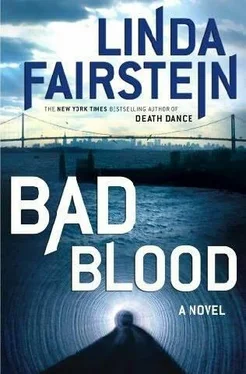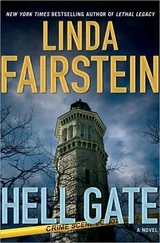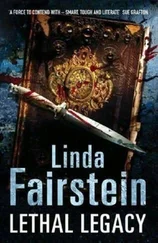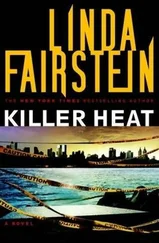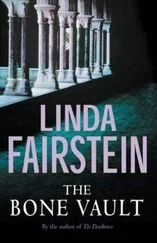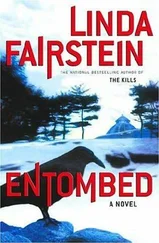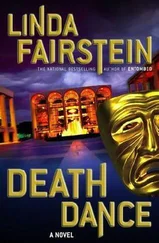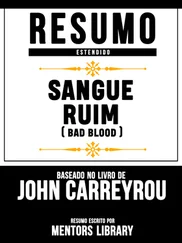I glanced over my shoulder again as Judge Gertz banged his gavel to restore order.
Preston Meade, the cuckolded husband of Kate, was shouting my name as he charged toward the railing that separated the benches from where I stood.
“He only wanted to publicly humiliate you, kid. Like you did to him this morning.”
“Me? I didn’t do anything to him except-”
“Except completely misjudge the character of your first witness,” Mike said. “Mr. Meade was probably hoping that if he made a big enough stir inside the courthouse, it would trump the news story of his wife’s infidelity.”
Judge Gertz had quelled the commotion and allowed Lem Howell to end the session-keeping the jury later than planned-with his cross-examination of Dr. Genco. It was after six when Mike and I returned to my office to make the phone calls confirming the appearances of the next day’s witnesses.
“You changing the batting order?”
I was scratching out names and shifting some of the civilian witnesses to the next week. “You bet. I’m sticking with forensics at the moment. Cold, clinical facts.”
I dialed the beepers and home numbers of the crime-scene analysts who had scoured the Quillian town house unsuccessfully for fingerprints, photographed the entryway and the parlor, and tried to give the lab techs something to work with, as well as the forensic biologist who had spent painstaking hours vainly trying to find nanograms of DNA on items that had been on or around the victim’s body. By seven fifteen, I had restructured my case presentation and was ready to quit for the night.
“Let’s check the tube and see how they play the day,” Mike said, starting out for the public relations office on the main corridor of the eighth-floor hallway. The press secretary, Brenda Whitney, had the responsibility of monitoring media accounts-on television and in print-of all the office cases that attracted attention for daily reports to Paul Battaglia, the longtime district attorney of New York County.
“Did Brenda leave you the key?” She had a bank of television sets that ran all day so that her staff could follow national news stories-Battaglia’s creative white-collar investigations that frequently shook up the financial industry-and feeds from the local networks that replayed around the clock.
Mike dangled the key over his shoulder as he walked out my door. “Follow me. One cycle of breaking news and then you can feed me. Mercer will meet us for dinner in an hour.”
“I’ve told you I can’t eat,” I said, picking up some folders to take home and turning out the lights.
“We need to keep your strength up for the rest of the battle. I think Lem’s been chewing steak knives to sharpen his teeth for the kill.”
We let ourselves into the pressroom and Mike flipped on one of the TVs. The local all-news channel repeated its headlines three times an hour, and it took only minutes until they reran the end-of-the-day broadcast from the courthouse steps.
Mercer had done his job well. He had spirited Kate Meade out the back door so the press had no photo ops, no footage with which to tell her story. Instead, they got shots of Preston Meade being led away from the building by three uniformed officers who had surrounded him when Judge Gertz ejected him from the proceedings.
The telegenic Lem Howell smoothed his hair back and smiled for the cameras. He’d never met a microphone he didn’t like. “I think you’ll see that the state rushed to judgment in this tragic matter,” he said to the reporter, who was eager to get a quote from a principal in the case.
“You have any idea who the killer actually was?”
“No more so than the prosecutor does, I’d have to say.”
“Give those glib jaws a rest,” Mike called out to the image on the screen as he switched channels. “You didn’t come off too badly in all that.”
“Only because Preston Meade hasn’t found a path to Battaglia yet to complain.”
“C’mon, blondie. The way your luck is blowing, I got a shot at Jeopardy! tonight and then we’re off, okay?”
For as long as I’d known Mike Chapman, it had been his habit to watch the last five minutes of the perennially popular quiz show in order to bet against whoever was in his company on the final Jeopardy! question. Mercer and I were the usual combatants, wagering twenty dollars or more, depending on whose favorite subject was the topic of the evening. Squad commanders, prosecutors, morgue attendants, and dead bodies had all been kept waiting while Mike tested his wits against the on-screen players.
Alex Trebek was smiling at us as the commercial break ended. “Tonight’s category is Greek Mythology. Let’s see what the answer is, folks.”
“Double or nothing,” Mike said. He had majored in history at Fordham College before joining the NYPD and had encyclopedic knowledge of military figures and events, both American and worldwide. If the subject was an ancient Greek warrior, he would beat me cold. “You can always hope for Leda and her swans.”
“Do I have any choice?” I asked, removing the bills from my wallet.
Trebek revealed the answer on the giant blue game board as he spoke it aloud. “Iconic desert figure whose original Greek name means ‘the strangler,’” Trebek said, repeating the word I had hoped not to hear again tonight. “The strangler.”
“Brendan Quillian isn’t Greek, is he?” Mike said. “I’m totally stumped. Where’s there a desert in Greece?”
“Out of my league,” I said, waving the bills at him. “We’ll use this for drinks.”
“I’m sorry that none of you guessed it correctly,” Trebek said to his three dejected contestants. “The Sphinx. The Great Sphinx at Giza, which for many people symbolizes the country of Egypt, is named from the Greek word for a fantastic creature with the head of a woman, the body of a lion, and the wings of a bird. Legend has it that she strangled travelers who couldn’t solve her riddle.”
Mike zapped Trebek off with the clicker. “I’ll give you a hundred bucks if you work that image into your summation. ‘Ladies and gentlemen, the defendant testified in this courtroom, no longer silent like the Sphinx, the great ancient strangler of the desert-’”
“‘Half-man, half-beast.’ You’re on. And it’s all providing I survive Lem’s motion to dismiss at the end of the People’s case. Where are you meeting Mercer?”
“Primola,” Mike said, referring to my favorite Upper East Side Italian restaurant on Second Avenue, not far from the high-rise building in which I lived. The consistently great fare, the casual ambience, and the personal attention we received from the owner and his crew made it one of my regular haunts. “My car’s on Baxter Street. Wait in the lobby and I’ll come around for you.”
We rode down together in the elevator and I chatted with the Fifth Precinct officer who had been assigned to lobby security, a quiet post on this warm summer night. When Mike’s car pulled in front of the orange cones that kept Battaglia’s parking space reserved, the cop walked me out and opened the car door. I threw the paper bags full of empty coffee containers and soiled napkins onto the seat behind me and settled in on the passenger side for the ride uptown.
Mike Chapman and I made an unlikely pair. I had turned thirty-seven at the end of April, six months after he’d celebrated the same birthday, but we had few other traits in common beside our age. His father, Brian, had been a legend in the NYPD, known for his street smarts, his guts, and his investigative style, who’d retired after twenty-six years on the job only to die of a coronary forty-eight hours from the time he gave up his gun and badge. His widow, born in Ireland, made good on her promise to see that Mike graduated from college, but was just as proud when he used those qualities of his father’s that seemed to have passed to him through the genes and joined the force the day after completing his degree at Fordham.
Читать дальше
